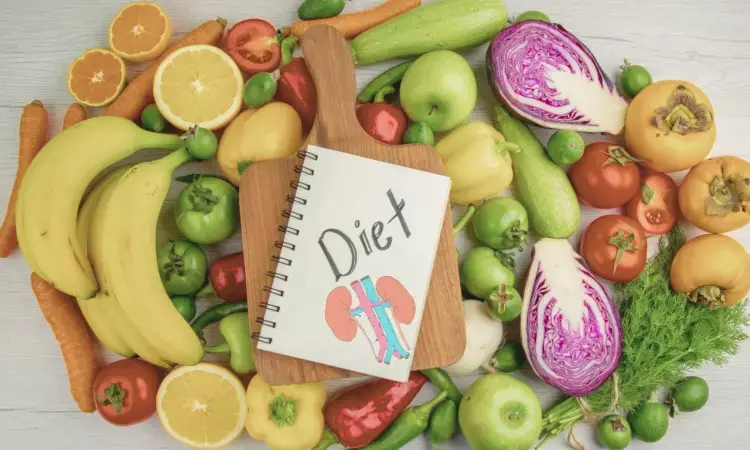- Home
- Medical news & Guidelines
- Anesthesiology
- Cardiology and CTVS
- Critical Care
- Dentistry
- Dermatology
- Diabetes and Endocrinology
- ENT
- Gastroenterology
- Medicine
- Nephrology
- Neurology
- Obstretics-Gynaecology
- Oncology
- Ophthalmology
- Orthopaedics
- Pediatrics-Neonatology
- Psychiatry
- Pulmonology
- Radiology
- Surgery
- Urology
- Laboratory Medicine
- Diet
- Nursing
- Paramedical
- Physiotherapy
- Health news
- Fact Check
- Bone Health Fact Check
- Brain Health Fact Check
- Cancer Related Fact Check
- Child Care Fact Check
- Dental and oral health fact check
- Diabetes and metabolic health fact check
- Diet and Nutrition Fact Check
- Eye and ENT Care Fact Check
- Fitness fact check
- Gut health fact check
- Heart health fact check
- Kidney health fact check
- Medical education fact check
- Men's health fact check
- Respiratory fact check
- Skin and hair care fact check
- Vaccine and Immunization fact check
- Women's health fact check
- AYUSH
- State News
- Andaman and Nicobar Islands
- Andhra Pradesh
- Arunachal Pradesh
- Assam
- Bihar
- Chandigarh
- Chattisgarh
- Dadra and Nagar Haveli
- Daman and Diu
- Delhi
- Goa
- Gujarat
- Haryana
- Himachal Pradesh
- Jammu & Kashmir
- Jharkhand
- Karnataka
- Kerala
- Ladakh
- Lakshadweep
- Madhya Pradesh
- Maharashtra
- Manipur
- Meghalaya
- Mizoram
- Nagaland
- Odisha
- Puducherry
- Punjab
- Rajasthan
- Sikkim
- Tamil Nadu
- Telangana
- Tripura
- Uttar Pradesh
- Uttrakhand
- West Bengal
- Medical Education
- Industry
Kidney stone formers reported drinking more soft drinks, fewer vegetables

Switzerland: People with a history of kidney stones reported a lower intake of coffee, tea, vegetables and alcohol, but reported drinking more frequently soft drinks than non-stone formers, revealed a recent study published in the Journal of Renal Nutrition. Also, those with kidney stones were more likely to consume nuts, seeds, fresh cheese, local cakes and biscuits.
People with a history of kidney stones versus those who have never had nephrolithiasis had a similar diet overall.
Researchers suggest that diet plays a critical role in the formation of kidney stones and recommend clinicians encourage a diet rich in vegetables, and dairy products and limited in salt with meat along with ample intake of water or unsweetened beverage to mitigate the rising number of people experiencing kidney stones.
Kidney stones are associated with high morbidity (potential complications include kidney failure or ureteral obstruction) and high costs. Diet is suggested to have a major impact on the formation and management of kidney stones.
“Primary and secondary prevention has a major role to play to fight this public health problem based on efficient dietary recommendations," the researchers wrote.
Constance Legay, University of Lausanne, Lausanne, Switzerland, and colleagues aimed to describe the dietary intake of kidney stone formers in Switzerland and to compare it to non-stone formers.
For this purpose, the researchers used data from the Swiss Kidney Stone Cohort comprising 261 patients. The Swiss cohort is a multicentric cohort of recurrent or incident kidney stone formers with additional risk factors, and a control group of computed tomography (CT) -scan proven nonstone formers (n = 197).
Two consecutive 24-h dietary recalls were conducted by dieticians using structured interviews and validated software (GloboDiet). The researchers took the mean consumption per participant of the two 24-h dietary recalls to describe the dietary intake. Two-part models were used to compare the two groups.
The study led to the following findings:
· The dietary intake was overall similar between stone and non-stone formers.
· Kidney stone formers had a higher probability of consuming cakes and biscuits (odds ratio (OR) = 1.56) and soft drinks (OR = 1.66).
· Kidney stone formers had a lower probability of consuming nuts and seeds (OR = 0.53), teas (OR = 0.50), fresh cheese (OR = 0.54), and alcoholic beverages (OR = 0.35), especially wine (OR = 0.42).
· Among consumers, stone formers reported smaller quantities of vegetables (β coeff = − 0.23), coffee (β coeff = − 0.21), teas (β coeff = − 0.52) and alcoholic beverages (β coeff = − 0.34).
"Stone formers reported lower intakes of tea, coffee, vegetables, and alcoholic beverages, more specifically wine, but reported drinking soft drinks more frequently than non-stone formers," the researchers wrote. "For the other food groups, stone formers and nonformers showed similar dietary intakes."
"There is a need for further research to better understand the links between diet and kidney stone formation and develop dietary recommendations adapted to the cultural habits and local settings," they concluded.
Reference:
Legay C, Haeusermann T, Pasquier J, Chatelan A, Fuster DG, Dhayat N, Seeger H, Ritter A, Mohebbi N, Ernandez T, Chopard CS, Buchkremer F, Segerer S, Wuerzner G, Ammor N, Roth B, Wagner CA, Bonny O, Bochud M. Differences in the Food Consumption Between Kidney Stone Formers and Nonformers in the Swiss Kidney Stone Cohort. J Ren Nutr. 2023 Jul;33(4):555-565. doi: 10.1053/j.jrn.2023.04.007. Epub 2023 Apr 27. PMID: 37120128.
Dr Kamal Kant Kohli-MBBS, DTCD- a chest specialist with more than 30 years of practice and a flair for writing clinical articles, Dr Kamal Kant Kohli joined Medical Dialogues as a Chief Editor of Medical News. Besides writing articles, as an editor, he proofreads and verifies all the medical content published on Medical Dialogues including those coming from journals, studies,medical conferences,guidelines etc. Email: drkohli@medicaldialogues.in. Contact no. 011-43720751


